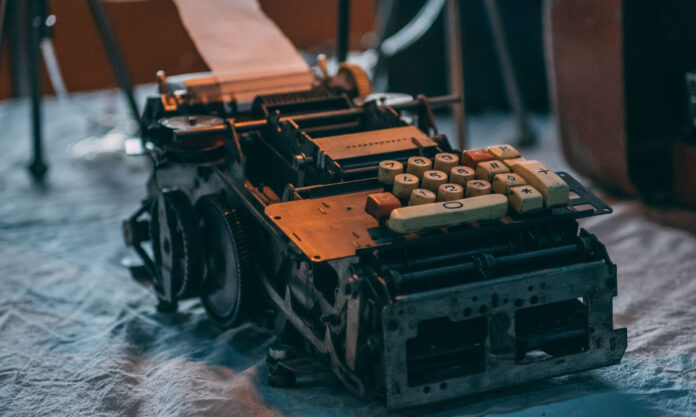“There’s no ‘I’ in the word team.”
How many times has this old chestnut been trotted out by educators and coaches worldwide to inspire and entice reluctant collaborators? Too many, probably. Definitely so many that one definitive rejoinder is now a stalwart response; “It’s in the A hole. As in, the hole. In the A”.
And speaking of A’s and I’s and Teams, that is precisely what I, and every other teacher this side of Andromeda have been considering of late. Artificial Intelligence and Teamwork. Specifically, of the days of independent work, created by an individual, on their own. Much has been written about the fearful rise of AI and the possibility that it may take over creative jobs previously the exclusive purview of humanity. Indeed, the Harvard Business Review called this propensity for creativity, “The human masterpiece”.
But now, generative AI in the form of ChatGPT and Midjourney, to name but a few, are capable of somewhat whelming, neither over nor under, output, drawing from a hitherto unknown ocean of online resources. Now that large language models of AI are capable of producing work of at least equal quality as that of an average garden human, will anyone ever work alone, ever again? Asking for a teacher friend….
Whilst soft skills and personability have long since been hailed as the key success factors for the 21st century, this unprecedented paradigm shift has left many, including the education sector, scratching their proverbial foreheads.
In order to assess and guide student progress, one must be sure of where said student is on their learning journey. Yet, this becomes increasingly difficult, on account of the habit of asking AI engines for the answer. LinkedIn recently posted an article by Joshua Miller wondering exactly the same thing. Has AI resulted in a decline in our critical thinking? “[Critics] worry that AI algorithms may reinforce […] biases, limit exposure to diverse viewpoints, and hinder our analytical reasoning”, writes Miller, adding that he agrees that these are valid concerns.
Similarly, when one of my students turns in an assignment on par with Noam Chomsky on a good day, I can’t but wonder how much of this production is authentic.
Then, I remember my beleaguered maths teacher wailing “But you won’t ALWAYS have a calculator with you, will you?” To be honest, I hadn’t dared to hope that in fact, I mostly always would.
Is this the dawn of the end of individual battle for criticality? Will all difficult thought now be carried out by the AI ghost-in-the-machine?
But this pessimistic prediction of the decline of human ingenuity, the death or critical thinking, the perishing of the pursuit of knowledge does not allow for the fact that humans have always been hooked on learning. Whilst the impeccable fusion of human imagination and machine precision is certainly advantageous, it is not ever going to replace the human ability to think human thoughts.
And by “ever”, I mean, it hasn’t yet done so, and that’s about as much as we can hope to know these days, given the ever-accelerating rate of change.
Using AI to learn is working smarter, not harder. Got a question about the difference between a nucleosyls and a nucleus?
What about the apostrophe in grammar and apostrophe in poetry? AI knows the difference between this too.
Might you learn something from using AI as a personalised learning aid? Hopefully. In many ways, AI is the perfect teamwork between insightful instruction and diligent desire for understanding. It is also capable of vast pattern recognition and data access, far beyond that of most folk, even on their very best day. Leveraging the potentials of AI as a tool then, seems like a no-brainer.
The danger, however, arises when AI is used to do the thinking rather than to aid the thinking. This is when questions around diminished criticality and bias re-emerge, like fins in the water.
You can almost hear the ominous duh-nuh, duhnuhduhnuhduhnuh soundtrack, can’t you?
But it’s not so bad. Most, if not all of us, have already had some fun pointing out AI’s blind spots or whacking great errors to our intrepid learners.
AI cannot fathom Barbie as a movie by Great Gerwig, because “as an AI language model, I do not have access to specific information about future works, such as Greta Gerwig’s film “Barbie” in 2023. My training data only goes up until September 2021” [Poe.com].
Similarly, it misidentifies authors, churns out generic themes and overuses the term “showcases” to the point of absurdity. It is currently good, but a little beige. It cannot achieve genius brilliance, yet. Although AI will doubtless continue to improve, it is still no substitute for discernment and criticality in terms of insight and nuance.
For we must not forget that AI has been programmed using the very best the 20th and early 21st century had to offer, and is replete with the limitations of this crème-de-la-crème also. See the very worst of the 20th century for a sense of what these might be.
AI; the most impressive calculator yet to be invented. Much the same as the ubiquitous use of this addition machine in maths exams nowadays, AI will change the landscape of learning in ways that we cannot even imagine. Thankfully, education is one field that cares not for what is past but what is to come. Perhaps not many fields are so uniquely poised to embrace AI like an old friend and invite it over for dinner like the new AI in the word “team”.
In the end, all knowledge is generative. AI is simply a new tool to add to our toolbox, one that we must learn to potentiate the capacity for learning rather than replace it.
Does it mean that independent thought and learning are a thing of the past?
Seeing the blush of satisfaction that comes from new understanding every day, I doubt it.









